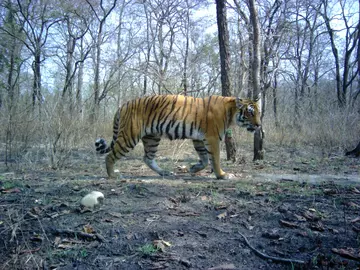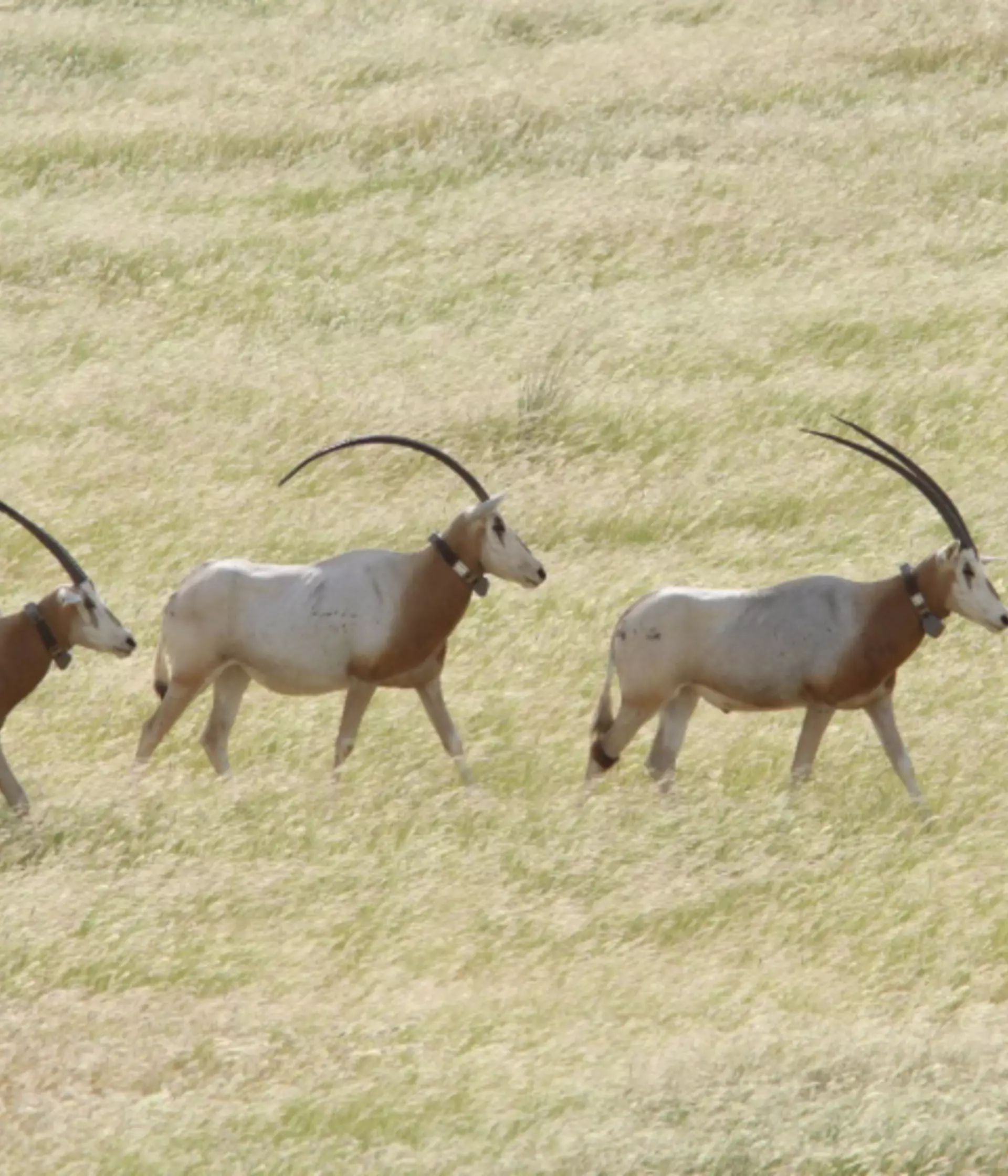ZSL
Zoological Society of London
COP15: "We need a global breakthrough deal to restore the natural world”.
ZSL is calling for world leaders to make ambitious, evidence-led commitments to tackle world-wide biodiversity loss.
The global biodiversity crisis threatens more than just nature.
From the air we breathe to the food we eat, healthy ecosystems underpin essential aspects of our lives; as species are lost to extinction and these intricate systems collapse, nature’s ability to provide vital services drastically drops.
This December, world leaders and scientists will come together in Montreal to address this devastating worldwide loss of wildlife; the Convention on Biological Diversity conference (COP15) is the last of three international meetings taking place this winter and will see global decisionmakers from 196 countries negotiate the Post-2020 Global Biodiversity Framework – a plan outlining this decade's targets for the restoration of nature.
Progress so far towards this goal has been lacking; despite past pledges to address the crisis, animal populations continue to face drastic declines.
Not a single government has met biodiversity targets that were set two decades ago, and 2022’s Living Planet Report, produced by WWF with science from ZSL’s Living Planet Index, showed that wildlife populations have declined on average by 69% in less than a lifetime as a result of human activities including overexploitation, habitat destruction and climate change. A demand for bushmeat has seen gorilla populations in the Democratic Republic of Congo drop by 80% between 1994 and 2019, while global river dolphin abundance has declined on average by 73% between 1980 and 2018.
The lack of past action leaves our planet in a fragile place - but nature success stories, such as growing Bengal tiger populations in Nepal and the reintroduction of the scimitar-horned oryx to its historic homeland in Chad, show that through governmental support and the expertise of conservation organisations such as ZSL, wildlife restoration is possible.

ZSL wants to see the UK and other countries to take the opportunity at COP15 to reverse the devastating loss of wildlife that we are currently witnessing and ensure a nature-positive world by 2030. To achieve this, world leaders must commit to putting nature at the heart of all global decision making, through setting ambitious targets and creating strong action plans to halt human-caused extinctions and recover wild populations - all of which must be held to account by evidence-based indicators including the Living Planet Index, which ZSL is calling to be used as an official metric of global biodiversity status.
The importance of protecting nature has often been left unrecognised by world leaders, with governments across the world giving the topic little consideration outside of their environmental departments, despite how vital functioning ecosystems are for public health, food security and the economy.
However, the world has already seen huge attitudinal shifts towards the climate crisis, with the 2015 UN Climate Change Conference in Paris saw momentous progress as world leaders agreed upon a legally binding breakthrough treaty that holds nations accountable to limit global heating to 1.5C through substantially reducing their greenhouse gas emissions - a commitment known as the Paris Agreement.
Healthy ecosystems are essential to mitigating climate change, and without a similar meaningful pledge to address biodiversity loss being agreed upon at COP15, it will be impossible to meet the target set in Paris.
Last month's 27th UN Climate Change Conference in Egypt saw numerous positive firsts for nature, including the use of biodiversity focused language in the Cover Decision – a short document outlining the main outcomes of negotiations. This recognition by policy makers of the intrinsic connection between climate change and the biodiversity crisis offers a glimpse of hope that attitudes are beginning to shift to recognise how important nature is for ensuring a future that we all want to live in.
Halting biodiversity loss and restoring nature worldwide won’t be easy, but it is essential for protecting life on Earth as we know it.
You can read ZSL’s full position paper on the progress that must be made at COP15.
COP 27, followed by COP 19 in Panama in November and COP15 in Montreal in December, will together put a much-needed spotlight on the decline in global biodiversity.
But without coordinated nature-based policies in place across the world, animals will continue to go extinct, ecosystems will continue to break down and climate change will continue to change life on earth as we know it.
It is vital that governments commit to using nature-based solutions - rooted in science from ZSL and organisations like it - to tackle the combined threats of climate change, biodiversity loss and public health crises.
It is with science that those in power must start: throughout conference season, ZSL is calling for world leaders to put nature at the heart of all global decision-making to better protect ecosystems, wildlife and the communities who rely on them.
Support ZSL's global science and conservation work and find out more
Climate change and human activity have pushed our precious planet to its limit, causing the devastating loss of so many habitats and species. From lab to field, hands on and behind the scenes, we’re leading the future of conservation, shaping agendas and influencing change to support better life, health and living for people and wildlife.
